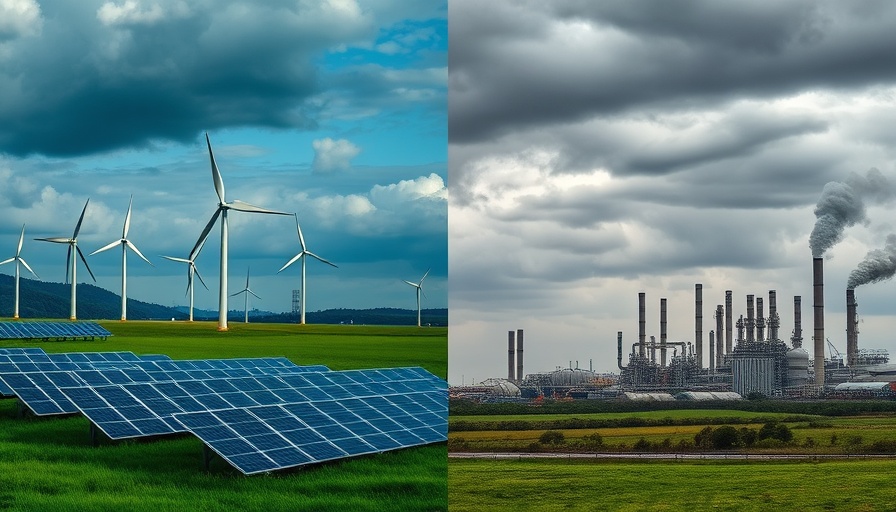
The Clean-Energy Movement Meets Traditional Energy Demands
The push for clean energy has gained considerable momentum, aligning with global sustainability goals. Major companies and governments have invested heavily in renewable resources, touting their environmental benefits and potential economic advantages. However, as the energy landscape evolves, tensions are arising between this green initiative and traditional fossil fuel industries, especially in the U.S. Rooted in a longstanding culture of oil dependency, the U.S. faces a complex crossroads: continue the push for clean energy or revert to traditional resource extraction.
Understanding the U.S. Energy Landscape
At a national level, the energy debate is fueled by economic necessities and political motivations. Republicans, in particular, have historically favored expanding fossil fuel extraction as a means to bolster the economy and enhance energy independence. In recent legislative discussions, significant measures aimed at fostering traditional drilling practices have surfaced, provoking debate amid growing climate-related concerns. The juxtaposition of enhancing domestic oil production against the backdrop of international climate obligations creates a narrative rife with conflict.
The Impact of Legislative Decisions on the Energy Sector
Recent GOP-led initiatives intend to expand drilling and investment in fossil fuel production, which raises important questions about the long-term vision for U.S. energy. Advocates argue this move will protect jobs in traditional industries and contribute to economic stability, especially in regions heavily reliant on oil and gas production. Critics, on the other hand, warn that such measures could jeopardize investments in renewable energy sources that are key to battling climate change.
Future Trends: Will Clean Energy Succeed?
The energy sector is witnessing an unprecedented moment of reckoning. According to the latest reports, investment in clean energy technologies is expected to continue to grow, but the road is not free of obstacles. A simultaneous surge in traditional oil and gas production raises questions about environmental sustainability and the global community's commitment to reducing carbon emissions. Analysts predict that how Congress navigates this dilemma will significantly impact the U.S.'s foothold in the global energy market.
Counterarguments: The Risks of Fossil Fuel Dependency
While proponents of fossil fuel production emphasize economic growth, it is crucial to consider the long-term consequences of reliance on nonrenewable resources. Climate scientists warn that continued investment in oil and gas could result in increasingly severe environmental damage, including natural disasters exacerbated by climate change. By transitioning toward clean energy solutions, the U.S. can not only reduce the environmental footprint but also cultivate jobs in emerging sectors.
Practical Insights: Engaging in the Energy Discussion
For concerned citizens, understanding the nuances in energy policies is essential. Paying attention to local representatives’ stances on energy legislation can foster informed voting practices. Engaging in community discussions about energy conservation and advocating for policies that support clean energy investments might create groundswell movements that influence political narratives. By staying informed, individuals can better respond to the interconnected energy challenges facing their communities and the nation as a whole.
This complex interplay between clean energy ambitions and traditional fossil fuel practices is a discussion that concerns us all. As we look toward the future, it is imperative to balance economic needs with the ethical responsibility to safeguard our planet for future generations. The actions we take now can determine the health and sustainability of our energy landscape moving forward.
 Add Row
Add Row  Add
Add 



Write A Comment